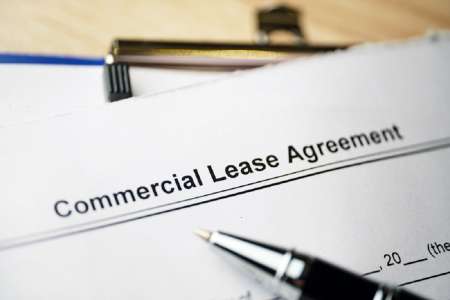
Entering into a commercial lease is a major commitment, and understanding its key components and implications can help protect your business.
Our Commercial Property Solicitors outline the key points to consider before taking a commercial lease.

Entering into a commercial lease is a major commitment, and understanding its key components and implications can help protect your business.
Our Commercial Property Solicitors outline the key points to consider before taking a commercial lease.
When entering a lease, it is important to conduct a professional survey to assess the property’s condition and highlight any existing defects or areas of disrepair.
Early recognition of the property's condition can prevent unexpected repair costs, save time and money, and avoid potential disputes.

Is the landlord responsible for certain parts of the property, or is it a full repair and insurance (FRI) lease?
An FRI lease requires the tenant to cover all repairs and insurance costs during the lease.
Significantly, this could mean that the tenant must repair the commercial property even if it was not in repair when the tenant entered into the lease.
This can be costly if the property is in poor condition at the start, as existing disrepair will need to be remedied when the lease ends.
Tenants can mitigate some of their costs by preparing a schedule of conditions.
This is a photographic document that provides a detailed record of the condition of a property, usually prepared immediately preceding the start of the lease.
Having a schedule of conditions annexed to the lease means that the tenant’s repair obligations will be limited to the standard shown in the schedule of conditions.

For several reasons, a tenant may wish to exit their lease before the term ends.
Leases can be negotiated to include a break clause, which provides a legal right to terminate the lease early.
This break right can either be exercised at a fixed point during the term of the lease or exercisable on a rolling basis. Normally a minimum notice of 6 months to the landlord is required before the break clause be exercised.
Break clauses often come with conditions, a common one being that the rent must be paid up to date at the time the break is exercised.
Understanding these conditions is essential, as failure to meet them could result in the tenant losing the right to break the lease early.

Leases often include rent review mechanisms to increase the rent at certain intervals during the term.
There are various rent review provisions that can be agreed between parties.
An open market rent review allows for the rent to be adjusted to the "open market" rate at a specified time during the lease term.
The open market rate is the rental value that the property would command if it were leased to a new tenant under current market conditions aligns rent with current market conditions.
A rent review linked to the Retail Price Index (RPI) is a mechanism where rent adjustments are based on changes in the Retail Price Index, a measure of inflation.
The RPI tracks the cost of goods and services, so when inflation rises, the RPI increases, and rent rises accordingly.
This type of rent review is often used to ensure that the rent keeps pace with the cost of living and general price levels.

Security of Tenure under the Landlord and Tenant Act 1954 is a tenant’s ability to renew their lease on effectively the same terms as the current one at the end of the contractual term.
This provides a measure of stability for tenants who wish to stay beyond the contractual term of the lease.
However, some leases may explicitly exclude this right, requiring tenants to vacate or re-negotiate their lease with the Landlord at the end of the term.
Tenants should clarify this point at the onset, as they may be unable to renew their lease when the current one expires.

Many landlords allow tenants to assign their lease or to underlet to a third party, but only with their consent and subject to certain conditions.
Subleasing means that the tenant rents out part or all the property to another tenant while still being liable for the original lease.
Assignment means that the tenant transfers all their rights and obligations under the lease to another tenant who becomes liable for the original lease.

Landlord’s very often insure the building and the tenant will be required to reimburse the Landlord for the policy premium.
The tenant typically pays a proportion, based upon the extent of their occupancy in relation to the building.
If the landlord is providing services, such as repairing any common part of the building, the tenant will also be required to pay a service charge.
Tenants should find out exactly what their service charge covers and—equally important—doesn’t cover.
Service charge provisions in leases are usually very detailed, and tenants should check the position with their legal adviser.

If you have any more questions or would like more information regarding commercial leases, you can contact our Commercial Property Solicitors below.